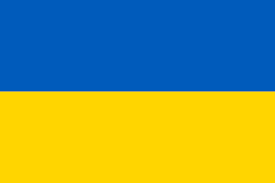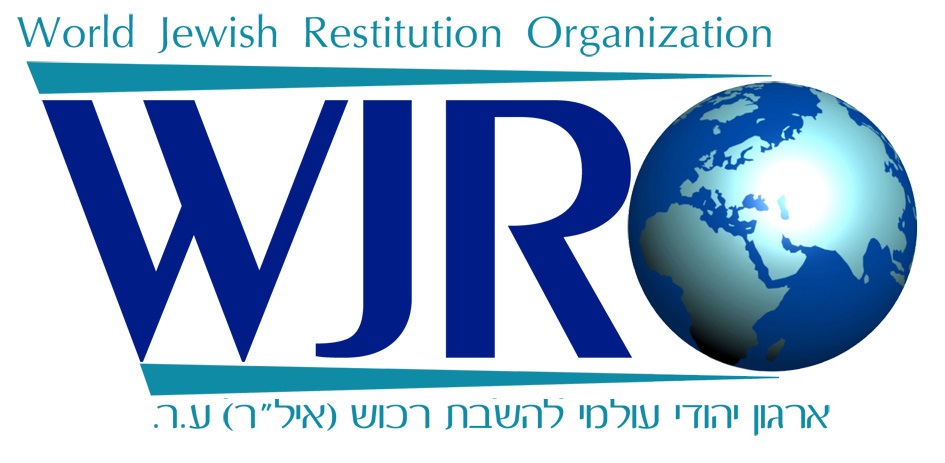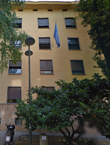
Ukraine
Ukraine has no law for the restitution of confiscated, communal or private real property. There have, however, been several governmental decrees which deal with the return of confiscated, former religious property for the use of religious organizations. In addition, Article 17 of the Law of Ukraine regarding Freedom of Conscience and Religious Organizations (Article 17 law) regulates the use of former cultural property by religious organizations. Approximately 1,530,000 Jews lived in Ukraine before the Holocaust; about 95,000 Jews live there now.
Through the Article 17 law and government decrees, as well as various decisions of local municipal and regional councils, the Jewish community has obtained the use, for religious purposes, of several dozen formerly Jewish-owned religious buildings.1 In total, certain Jewish communities have obtained the use of approximately fifty properties (mostly synagogues) over the last two decades, including fourteen synagogues in Ukraine which functioned during Soviet times.2 While the government proposed legislation in January 2009 to deal with the restitution of confiscated religious communal property, such draft legislation has made no significant progress in the legislative process.

Brodsky Synagoge in Kiev
Efforts have also begun to work with Jewish communities in Ukraine, as well as with the State Committee on Archives of Ukraine to register all Torahs in the country in order to prevent theft and smuggling and, ultimately, to assist in the orderly restitution of Torahs to their former owners.
During the Prague Holocaust Era Assets Conference, the 47 participating countries, including Ukraine, affirmed the Terezin Declaration. The Terezin Declaration encourages governments to take steps and support efforts to identify and catalogue those items of Judaica and Jewish cultural property which may be found in archives, libraries, museums and other government and non-government repositories, to return them to their original rightful owners and to consider a voluntary international registration of Torah scrolls where appropriate. Governments are also urged to take measures that will ensure the protection of Judaica and where appropriate and possible in terms of conservation, will restore sacred scrolls currently in government hands to synagogue use, where needed.
The Declaration further urged governments to address the private property claims of Holocaust (Shoah) victims concerning immovable (real) property of former owners, heirs, successors, by either in rem restitution or compensation in a fair, comprehensive and nondiscriminatory manner. The process of such restitution or compensation should be expeditious, simple, accessible, transparent, and neither burdensome nor costly to the individual claimant.

Old Jewish Cemetery Medzhibozh
The Declaration further proposed that governments make every effort to provide for the restitution of former Jewish communal and religious property. In light of the principles affirmed in the Terezin Declaration, we ask that the government take account of the following:
The Ukrainian government should distribute Torahs in its possession to Jewish communities and/or congregations in Ukraine which need them for worship services as soon as possible. The larger issue, of ascertaining who previously owned the Torahs and then returning them can, for the time being, be deferred but must eventually be addressed.
Any newly proposed legislation for the restitution of confiscated communal property should provide for the restitution of such property in rem or, if that s not possible, for fair compensation. The legislation should, among other property, cover synagogues and other property related to houses of worship, as well as property which was part of pre-war Jewish life, including schools, community centers and hospitals.
Ukraine should enact a law addressing the restitution of confiscated private real property. Ukraine currently has no law providing for the return of private property confiscated during the Holocaust..
—————————————————————————————————————-
1 Religious buildings include property designed to satisfy the religious needs of the citizenry (temples, monasteries, chapels, bell towers, mosques, minarets, synagogues and prayer houses).
2 Under a 1992 government decree, registered religious organizations were permitted to request the use of property confiscated by the Soviet regime, if necessary for religious worship. In August 2001, the Interagency Commission on Restitution of Property instructed the Ministry of Justice and the State Committee for Nationalities and Religions (SCNR) to draft a law regarding the restitution of property to religious organizations. Since that time, SCNR has indicated that the majority of buildings and objects in question have been returned to religious organizations and that the issue of restituting many of the remaining contested properties was complicated by the fact that they were currently occupied, otherwise encumbered, or fell within the jurisdiction of local governments.
3 In anticipation of a communal property restitution law, several lists, including one by the WJRO, identifying formerly Jewish-owned communal properties have been prepared. The most extensive list was compiled by Vaad of Ukraine, which identifies more than 2,500 communal properties, including approximately 1,200 former synagogues.
Resources and Links
ESLI Overview of Immovable Property Restitution/Compensation Regimes – Ukraine
European Shoah Legacy Institute
December 2016
US Department of State – Justice for Uncompensated Survivors Today (JUST) Act Report
July, 2020 – Ukraine – Contents on page 186







